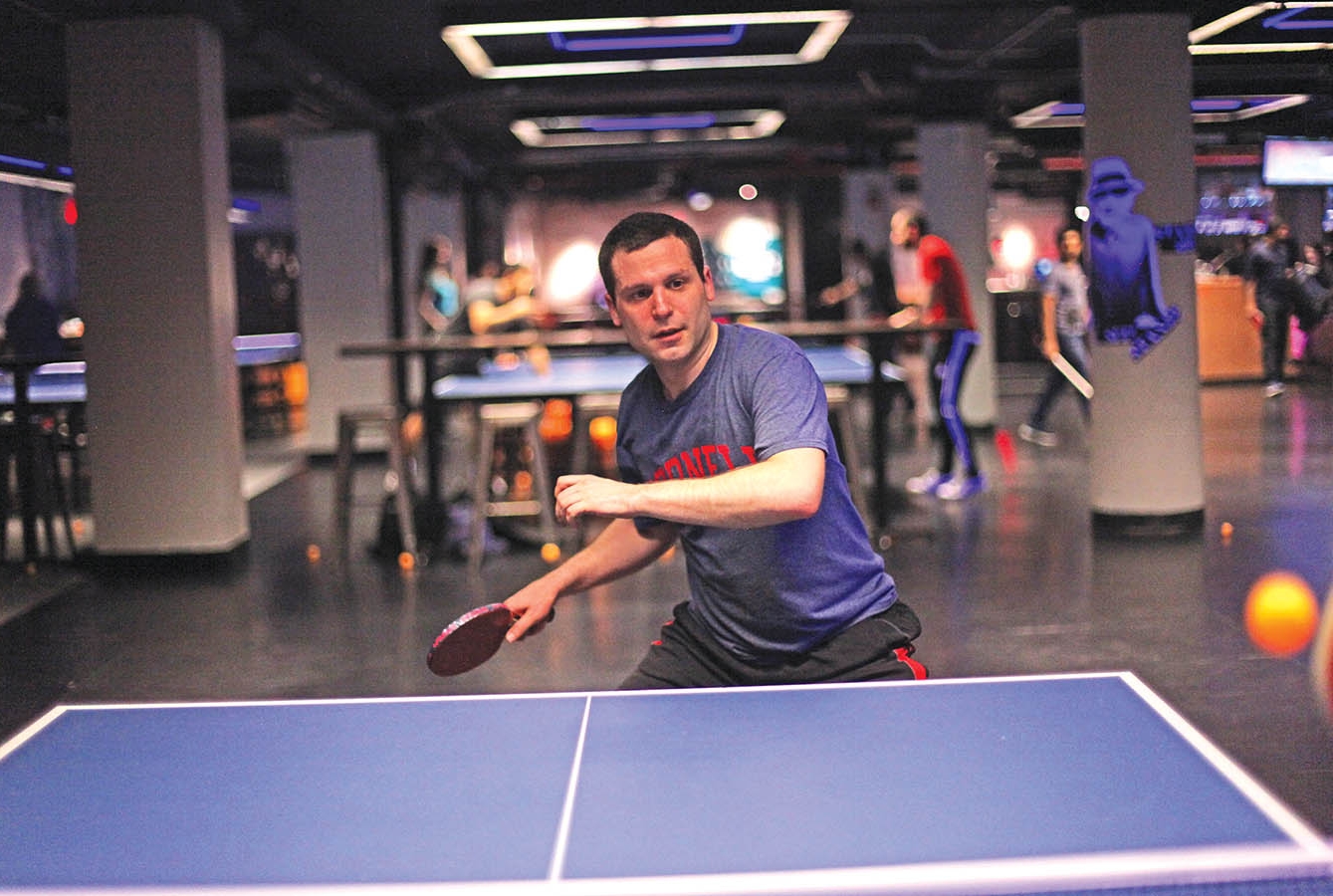Maccabiah Games medalist Dr. Matthew Simon is a table tennis whiz
What do infectious disease and internal medicine have to do with competitive table tennis? Not a lot. And that's one reason why Dr. Matthew Simon loves the game. "Ping-pong is so totally different from what I do as a doctor," says Dr. Simon, an assistant professor of medicine and of healthcare policy and research and a member of the Division of Infectious Diseases. "And it's simply a great stress reliever."
Dr. Simon is no casual player. He's a former Junior Olympian and top-ranked paddle master whose aggressive game and tricky forehand lend new meaning to the phrase "spin doctor." Last summer, Dr. Simon played for Team USA at the 19th annual Maccabiah Games in Israel, commonly known as the Jewish Olympics. Team USA won the bronze after toppling the U.K., ping-pong's country of origin.
It was a highlight of an athletic career that began in the family basement in Syracuse, N.Y., when Dr. Simon was 12. Eventually his father, an internist, introduced him to competitive ping-pong at places like the Polish American Citizens Club, a far cry from the family den. "Watching the games was just mesmerizing," Dr. Simon says. "There was this whole underworld of competitive table tennis that I discovered." From the local table tennis club in Syracuse, he went on to hone his skills at ping-pong camps and tournaments; by high school, he was nationally ranked in the top15 among players under 16. Dr. Simon continued to play competitively in college, helping start a team at the University of Pennsylvania. He took a seven-year hiatus from the sport during medical school and residency, but picked it up again when the Manhattan table tennis club Spin opened in 2009. By 2013, he was back in form and qualified for the Maccabiah Games, training and practicing several evenings a week.
What began as a leisurely British parlor game in the 19th century is now one of the fastest ball sports in the world — particularly given the close quarters in which it's played — with projectiles traveling up to 80 miles per hour across a nine-by-five-foot surface. "It's fantastic exercise, but it's not just about speed," Dr. Simon says. "A lot of the game is strategy. It's as much mental as physical." Dr. Simon likens it to a mix of boxing, running and chess. "You have to think fast and think ahead." Even if there is little direct connection to his profession, those are transferrable skills — and Dr. Simon has used them well. In spring 2013, he collaborated with New York City's Department of Health in responding to an outbreak of meningitis; last fall, he helped NewYork-Presbyterian Hospital deal with the Ebola threat.
Considering the demands of his day job, Dr. Simon has thought of retiring from the competitive ping-pong circuit. But he says he'll keep working on his game, in part because the sport has a rejuvenating quality. "When I'm playing, I meet a completely different circle of people, from all nationalities and walks of life," he says. "I love how the sport brings together people from such diverse backgrounds. So the game and my work do relate. Table tennis helps refresh my desire to find out what's unique about each of my patients."
— Franklin Crawford
This story first appeared in Weill Cornell Medicine,Vol. 14, No. 1.

